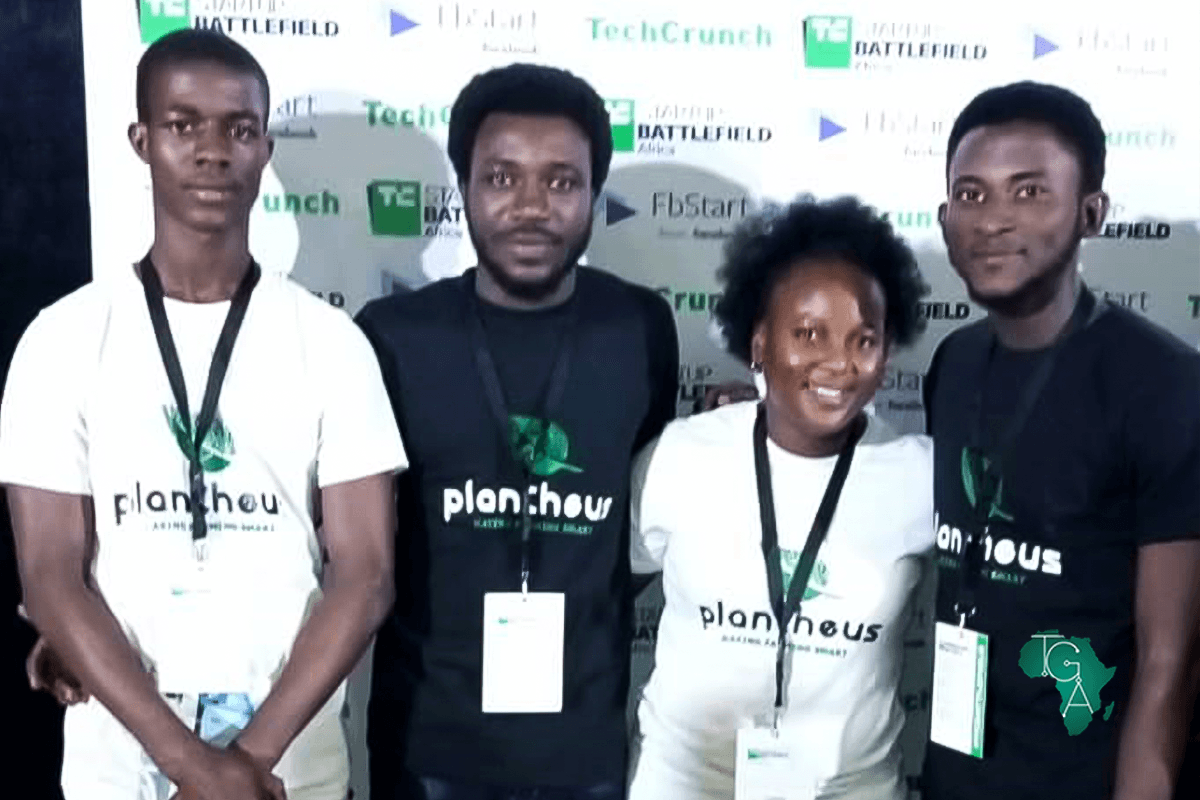Farmers constantly battle pest, diseases, low yields, inconsistent production pattern and insufficient mechanization. As a result of these impediments, cash crops do not yield anticipated results. The crops get infected by different types of diseases, which invariably affects the quantity and quality of the export. As a result, most cultivated crops do not meet the standards for exportation. Majority of farmers in Nigeria are subsistent. Small scale farmers sell cash crops indirectly through cooperative or licensed agents who sell in bulk to exporting firms. One of such subsistence farmer in Osun state is Ayomide’s father.
Ayomide Odumakinde, an undergraduate of Obafemi Awolowo University, frequents his father’s farm. On one of such visits, he went with friends to examine the impact of pest infestation on the crops. Shortly after, he met Faith Atoyebi, a graduate of Mycology and Fungal Biotechnology, who could detect the disease affecting the crop. After discussing the impacts of pest infestation, they were inspired to develop a product that’ll automate the process of detecting crop diseases.
Why Cocoa?

Cocoa happens to be one of the top export products in Nigeria. It is mostly cultivated in Ondo, Cross River, Ogun, Akwa-Ibom, Edu, Ekiti, Osun, Delta and Oyo States. According to the 2018 World Top Exports report, cocoa ranks number 3 in Nigeria’s export and contributes $317.5 million to the total export revenue. In 2017, Nigeria exported over 300,000 tons of cocoa and by 2016, production had increased by over 20%. The potential in cocoa is evident however, the challenges are present as well.
“I had just finished my MSc at that time, we discussed ways to help farmers tackle crop diseases, and came up with an idea. Hinged on the fact that I know a lot about crop diseases and Ayo was well-grounded in Artificial Intelligence, we decided to float the idea” Faith said.
They came about Plantheus, a mobile app that could easily detect diseases using artificial intelligence. Plantheus uses artificial intelligence and image recognition to help farmers with diagnosis and best practice recommendations for almost all kinds of diseases on their farm. It also hosts an online community for farmers and experts to interact and share knowledge on farm care and undetectable diseases for maximum productivity.
“Basically, the community is on our app and you have to download it to access the community. Take, for example, a scenario where there is a new outbreak of disease that is not on our database. The farmer can just go to the farm, take the picture of the new disease he noticed on the farm and then upload it online. If the experts are familiar with the disease, they will give advice on the type of treatment the farmer should employ. Also, the farmers can communicate with each other on best practices they can go about while growing cocoa” Faith said.
The Story behind Plantheus
Faith and Ayomide came up with the Plantheus idea in 2017. During her Master’s program, Faith met Ayomide, an undergraduate of Mechanical Engineering at Obafemi Awolowo University who happened to be her husband’s student. He is one of those self-taught Artificial Intelligence gurus interested in developing applications. They were later joined by Stephen Odebiyi, a software developer and Victor Oladutemu, a content developer. Shortly after, they applied for FB Start and were selected for a cohort program. September last year, they started work on the project after receiving a FB Start grant.
As the interview came to an end, we asked when the app will be available for farmers and their plans for the next five years.
“Our goal in the next 5 years is to actually personalize agriculture such that with the power of A.I, we can help the farmer with information tailored out for every farmer. Such that a farmer looking for information on crops can have information on crops”, said Ayomide.
Although they hope to widen their scope across various species of greenery, they currently work with the Cocoa Research Institute of Nigeria, collecting data to identify cocoa-related diseases. “We are looking at working with research institutes that have agricultural extension officers so that they will help solve the problems of farmers on the online community”, said Faith. The research workers will volunteer to answer the questions posed by farmers and advise them on best practices.
An Alpha prototype will be made available for download on the Google Play Store for agriculturists to evaluate. The app is still under development and will be launched towards the end of the year. One of the interesting features of this technology is that it works offline. They are presently working on partnering with research institutes for other crops like maize, tomato, and cassava as they look to extend their solution.















